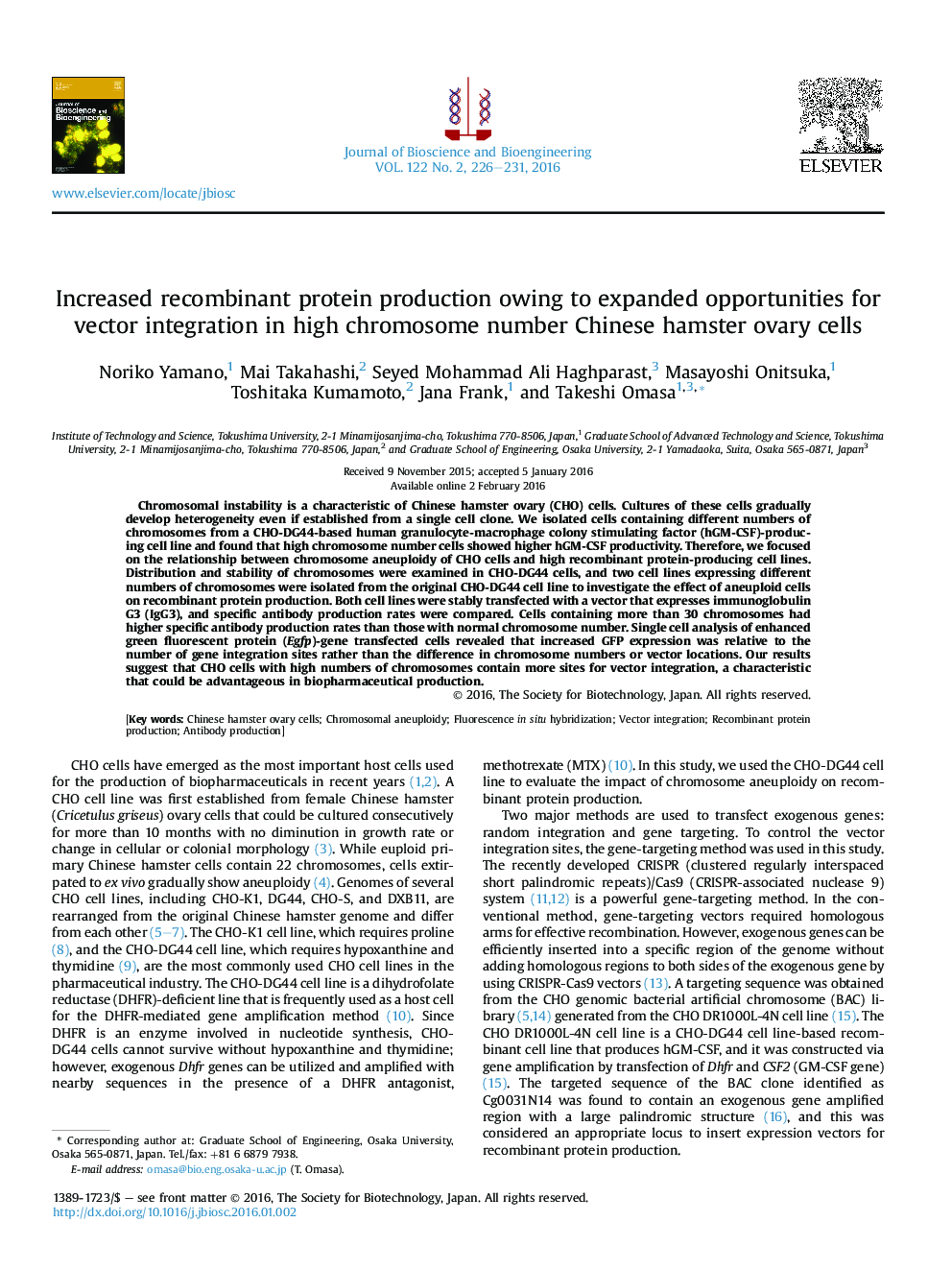| Article ID | Journal | Published Year | Pages | File Type |
|---|---|---|---|---|
| 20005 | Journal of Bioscience and Bioengineering | 2016 | 6 Pages |
Chromosomal instability is a characteristic of Chinese hamster ovary (CHO) cells. Cultures of these cells gradually develop heterogeneity even if established from a single cell clone. We isolated cells containing different numbers of chromosomes from a CHO-DG44-based human granulocyte-macrophage colony stimulating factor (hGM-CSF)-producing cell line and found that high chromosome number cells showed higher hGM-CSF productivity. Therefore, we focused on the relationship between chromosome aneuploidy of CHO cells and high recombinant protein-producing cell lines. Distribution and stability of chromosomes were examined in CHO-DG44 cells, and two cell lines expressing different numbers of chromosomes were isolated from the original CHO-DG44 cell line to investigate the effect of aneuploid cells on recombinant protein production. Both cell lines were stably transfected with a vector that expresses immunoglobulin G3 (IgG3), and specific antibody production rates were compared. Cells containing more than 30 chromosomes had higher specific antibody production rates than those with normal chromosome number. Single cell analysis of enhanced green fluorescent protein (Egfp)-gene transfected cells revealed that increased GFP expression was relative to the number of gene integration sites rather than the difference in chromosome numbers or vector locations. Our results suggest that CHO cells with high numbers of chromosomes contain more sites for vector integration, a characteristic that could be advantageous in biopharmaceutical production.
